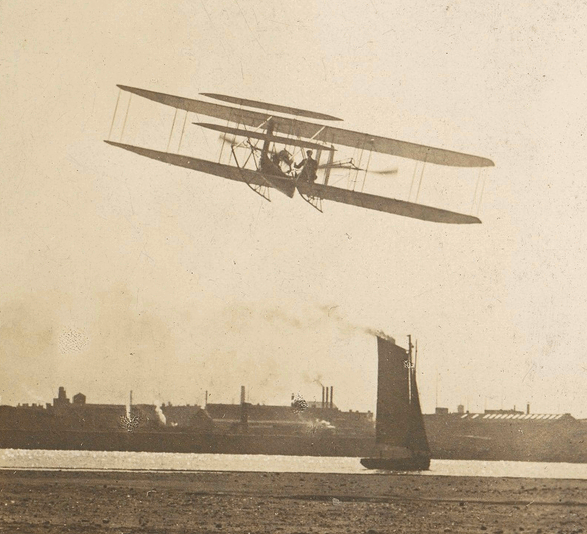David McCullough’s latest, The Wright Brothers, details how two bicycle makers with no formal training in aviation became the first to touch the sky. In what might be James Salter’s final piece of journalism, the NYRB has posthumously published the late novelist and journalist’s graceful critique of the new book. Probably best known for his acclaimed fiction, Salter also was a reporter for People magazine in the ’70s, profiling other writers, Vladimir Nabokov and Graham Greene among them. Here he focuses on the recurring theme of the brothers’ distance from the world in everything from their family life to the relative isolation of Kitty Hawk.
An excerpt about the very origins of the Wrights’ fever dream:
Together they opened a bicycle business in 1893, selling and repairing bicycles. It was soon a success, and they were able to move to a corner building where they had two floors, the upper one for the manufacturing of their own line of bicycles. Then late in the summer of 1896 Orville fell seriously ill with typhoid fever. His father was away at the time, and he lay for days in a delirium while Wilbur and Katharine nursed him. During the convalescence Wilbur read aloud to his brother about Otto Lilienthal, a famous German glider enthusiast who had just been killed in an accident.
Lilienthal was a German mining engineer who, starting with only a pair of birdlike wings, designed and flew a series of gliders—eighteen in all—and made more than two thousand flights in them to become the first true aviator. He held on to a connecting bar with his legs dangling free so they could be used in running or jumping and also in the air for balance. He took off by jumping from a building or escarpment or running down a man-made forty-five-foot hill, and he wrote ecstatically of the sensation of flying. Articles and photographs of him in the air were published widely. Icarus-like he fell fifty-five feet and was fatally injured, not when his wings fell off but when a gust of wind tilted him upward so that his glider stalled. Opfer müssen gebracht werden were his final words, “sacrifices must be made.”
Reading about Lilienthal aroused a deep and long-held interest in Wilbur that his brother, when he had recovered, shared. They began to read intensively about birds and flying.•
See also:

